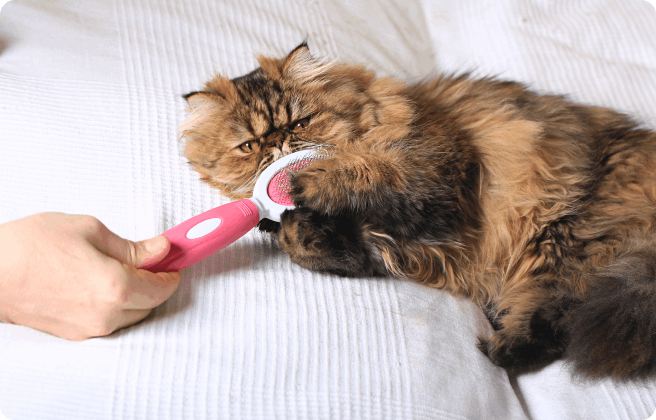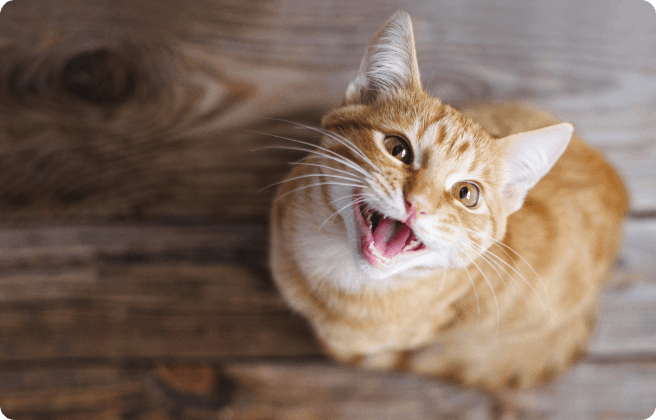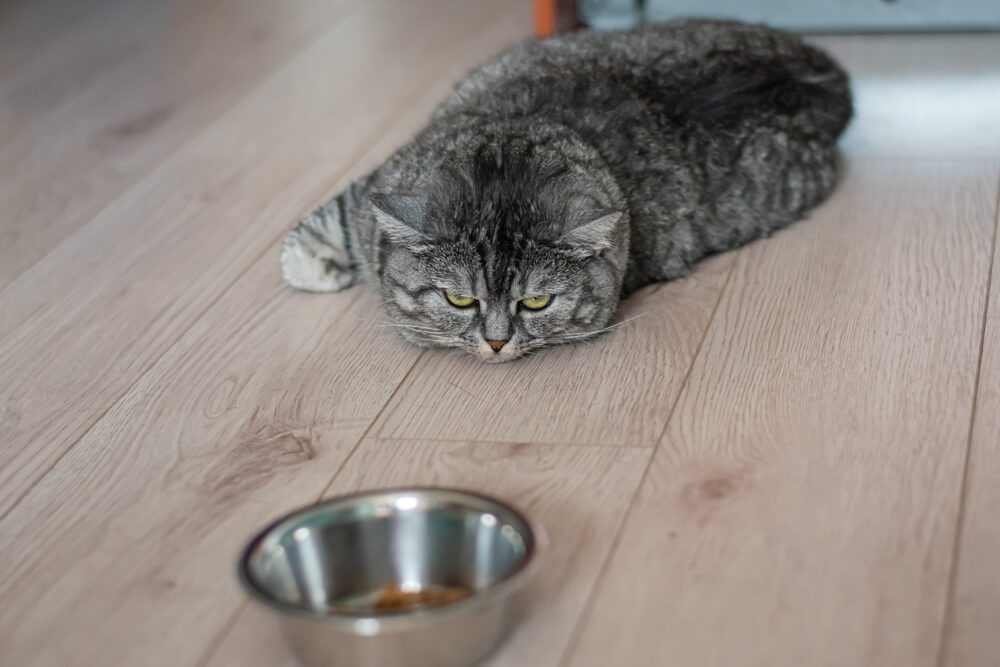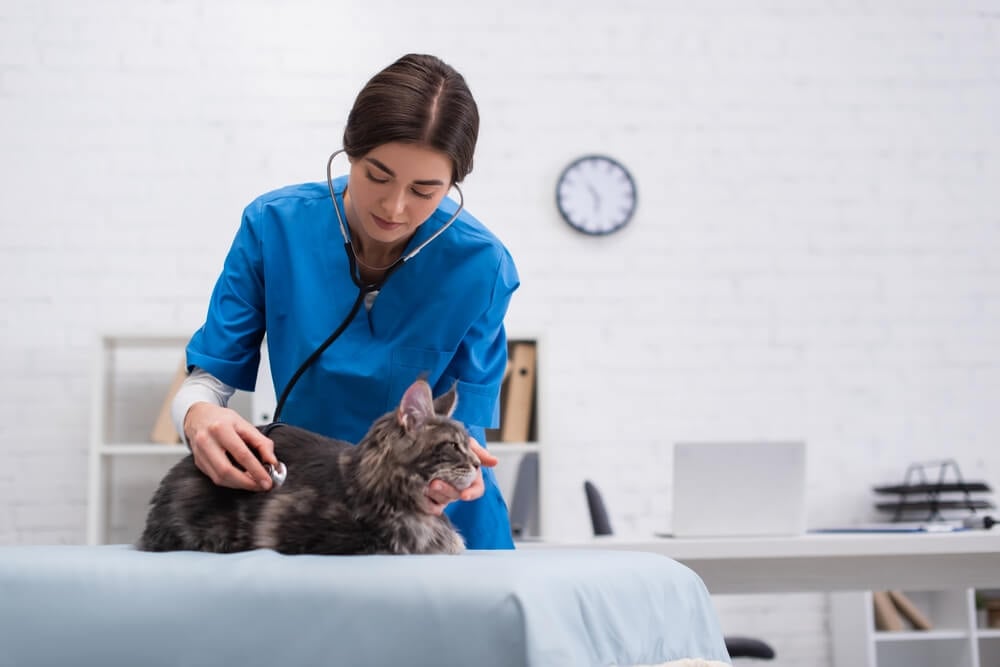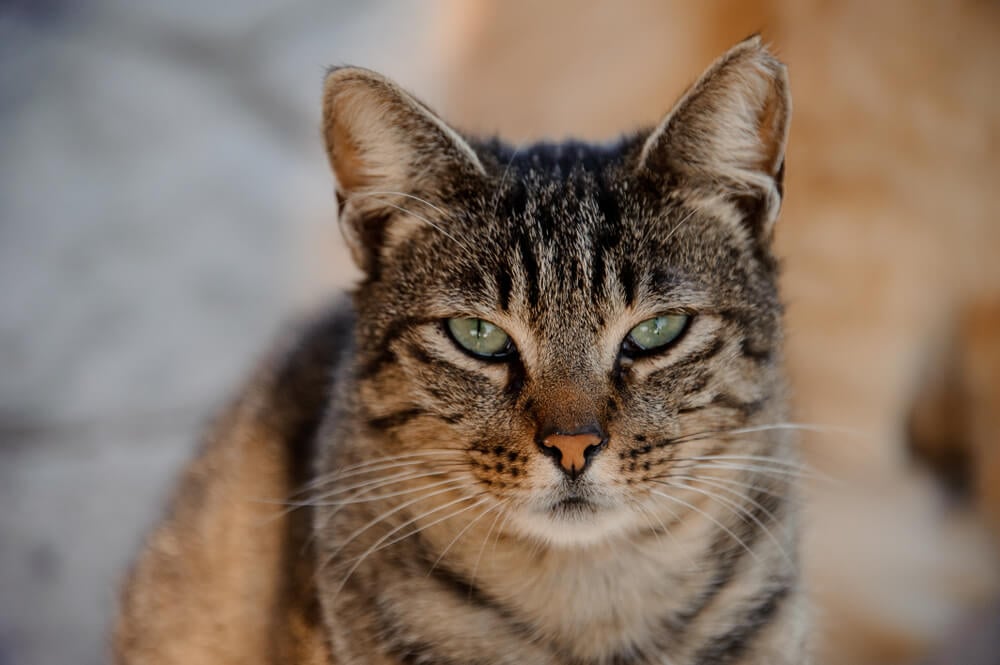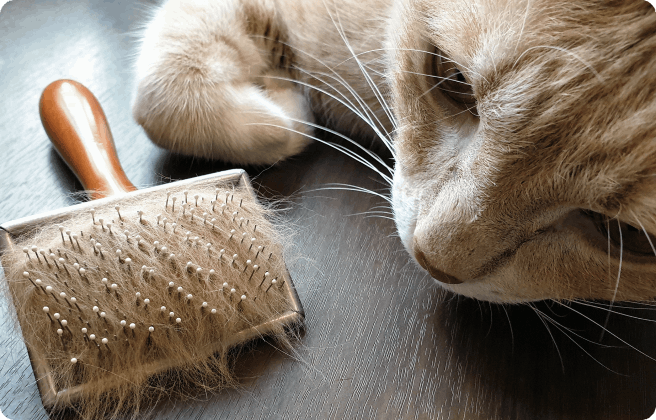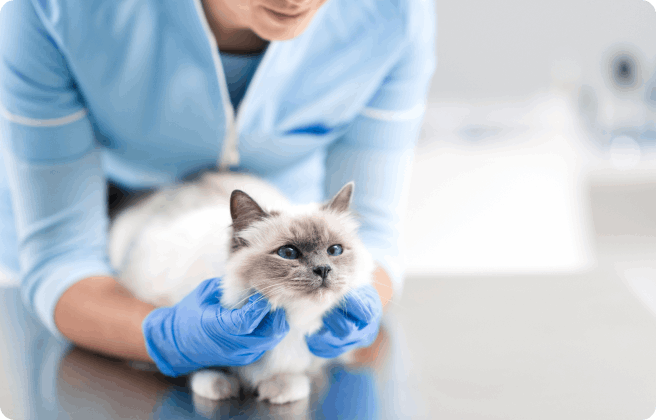
When it comes to signs that something’s not quite right with your cat, vomiting is pretty clear-cut. If it’s just a one-off, there’s no reason to be overly concerned, but parents should take action when it’s a regular occurrence — it could be a symptom of something much deeper.
Why do cats vomit?
Cats have evolved over time to mask their pain as best they can because when their ancestors were living in the wild, they didn’t want to advertise their vulnerability to predators. As such, modern-day parents are forced to play detective and look out for subtle signs when they suspect their cats aren’t feeling all too well — obsessive grooming, changes in mood and lots more meowing than usual are just a few giveaways.
You might think that vomiting means your cat’s really unwell, but if it’s only occurring infrequently, it’s nothing to get immediately worried about. Here are some common reasons why your cat will vomit.
- While it’s hardly the cutest thing your cat will do, throwing up hairballs is perfectly normal once or twice a week, especially in longer-haired breeds. If you think this is becoming slightly excessive, it’s possible to find over-the-counter supplements or types of cat food that work with their digestive system to reduce the incidence of hairballs.
- On other occasions, one-off vomiting can just be the result of a mild case of gastritis (stomach upset), perhaps caused by eating something unfamiliar or unpleasant they’ve found on the floor when out and about exploring.
- Cats also aren’t immune to travel sickness and sometimes find the experience of being in a carrier stressful. A recent trip in the car might have resulted in some queasiness that should pass pretty soon after stopping. If you’re a frequent traveler with your cat, your vet might be able to prescribe medication to help.
- If you’ve recently changed brands of cat food, there’s a possibility that vomiting is an allergic reaction to a new ingredient. It’s generally recommended to make the changeover to a new product last a couple of weeks at least, incorporating it in slightly larger portions each day so they can get used to it — many cats are notoriously fussy eaters.
- Just as in humans, vomiting might also be the natural reaction to overeating or wolfing down their food a little too quickly. Make sure that you’re giving your cat the correct portion size or you can even try spreading their overall allowance into smaller meals throughout the day. There are also specially designed bowls on the market that force a cat to slow down and savor their dinner.
It’s also worth double-checking that the food they’re consuming is suitable for their age or breed as well — a cat’s nutritional requirements can change over the course of their lifetime.
What should I do if my cat vomits?
At the first instance of vomiting, you don’t necessarily need to call the vet and your cat should hopefully bounce back to full health after a little bit of rest and TLC. However, alarm bells should start ringing if it becomes a regular habit or if it’s accompanied by other troubling signs — general lethargy, diarrhea, weight loss and flinches when you touch their abdomen suggest something more is afoot here.
Be sure to monitor your cat closely after they vomit and if you spot these symptoms, give the vet a call and ask them to run some tests to find out if there’s a deeper cause — X-rays, antibiotics and sample analysis can reveal the issue that’s causing your cat distress.
We uphold the highest editorial standards when creating the authoritative content pet parents rely on and trust.
Every piece of clinical content on the Cat Food Advisor is reviewed by our certified Veterinary Advisory Board, which consists of licensed veterinarians and medically certified specialists.
Our reviews are completely independent; we are not paid by any pet food company to promote their products favorably. We do not accept money, gifts, samples or other incentives in exchange for special consideration. For more information see our Disclaimer & Disclosure page.




